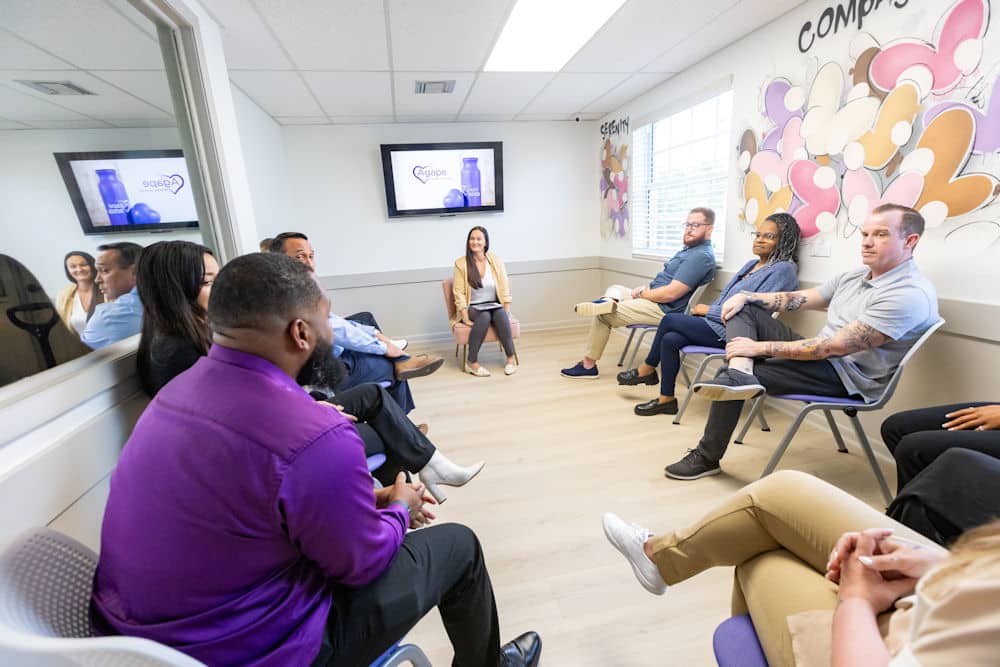Understanding Cocaine and Its Effects on the Body
Cocaine increases heart rate, blood pressure, and energy levels while creating intense euphoria. Over time, it strains the body and leads to severe health risks. A cocaine overdose happens when toxic levels overwhelm the body, causing life-threatening effects. The amount needed to overdose varies based on purity, health, method of use, and other substances involved.
Mixing cocaine with alcohol or opioids increases the risk of overdose. Cocaine use is prevalent, with approximately 5.5 million people in the U.S. using it each year. Young adults aged 18-25 report the highest usage rates, with 1.4% using it in the past month. Even occasional use carries significant dangers, as cocaine’s effects on the heart and brain can be unpredictable.
How Cocaine Affects the Brain and Heart?
Cocaine floods the brain with dopamine, creating intense euphoria and reinforcing addictive behaviors. It narrows blood vessels, increasing blood pressure and heart attack risk. Long-term use weakens the heart, leading to serious complications such as irregular heartbeats, heart failure, and aneurysms.
What Happens During a Cocaine Overdose?
A cocaine overdose causes seizures, dangerously high blood pressure, and irregular heartbeats. It can lead to a heart attack, stroke, or organ failure. Immediate medical help is needed to prevent fatal consequences, as untreated overdose can quickly become life-threatening.
Long-Term Consequences of a Cocaine Overdose
Surviving an overdose may lead to lasting heart damage, seizures, or neurological issues. Brain damage from overdose can cause memory loss and cognitive problems. Repeated overdoses increase the risk of fatal health conditions, including chronic heart disease and permanent brain dysfunction.
Signs and Symptoms of a Cocaine Overdose
Identifying the signs of a cocaine overdose can save a life. Many symptoms appear suddenly and worsen quickly. Understanding these symptoms helps people take action before it’s too late.
- Rapid Heartbeat: The heart races uncontrollably, increasing the risk of heart attack and stroke.
- Extreme Agitation: Intense restlessness, paranoia, and confusion may occur due to excessive stimulation of the nervous system.
- Seizures: Uncontrolled convulsions may happen, putting the person at risk for brain damage or injury.
- Chest Pain: Severe pain can signal heart problems, including heart attack or cardiac arrest.
- High Blood Pressure: Dangerous levels can lead to stroke, aneurysms, or other cardiovascular complications.
- Difficulty Breathing: Shallow or stopped breathing can occur, leading to oxygen deprivation.
- Unconsciousness: A person may pass out or become unresponsive, requiring immediate medical intervention.
A cocaine overdose can be fatal if not treated quickly. Knowing the signs can save a life.
Risk Factors for Cocaine Overdose

Several factors increase the likelihood of a cocaine overdose, making some users more vulnerable than others. Knowing these risk factors can help prevent fatal consequences. Education and awareness are key to reducing overdose risks.
Certain factors increase the risk of overdosing on cocaine:
- High Purity Cocaine: Stronger cocaine raises the risk of toxic effects by overwhelming the body.
- Mixing With Other Substances: Alcohol, opioids, or other drugs increase overdose potential by amplifying cocaine’s effects.
- Pre-Existing Health Conditions: Heart disease, high blood pressure, and mental health disorders raise the danger of overdose.
- Frequent Use: Regular use builds tolerance, leading to higher doses that can cause toxicity.
- Younger Age Group: People aged 18-25 use cocaine at higher rates, making them more vulnerable to overdose and addiction.
- Using Alone: If an overdose occurs with no one around, the chances of survival decrease significantly.
What to Do If Someone is Overdosing on Cocaine?
A quick response can save a life in the event of a cocaine overdose. Every second counts, and hesitation can be fatal. Taking the right action at the right time can be life-saving. Cocaine overdoses progress rapidly, and symptoms can worsen within minutes. Without proper intervention, the person may experience cardiac arrest, seizures, or respiratory failure. Immediate medical attention is essential to improving survival chances.
Quick action can save a life during an overdose.
- Call 911 Immediately: Emergency help is crucial. Tell responders the person has used cocaine. Providing details about other substances taken can also help.
- Stay With the Person: Do not leave them alone, as their condition can worsen quickly. Monitor their symptoms while waiting for medical help.
- Keep Them Calm: Reduce stress and agitation to prevent further strain on their heart. Speak in a reassuring tone and keep their surroundings quiet.
- Lay Them on Their Side: This prevents choking if they vomit or lose consciousness. Keeping airways clear reduces the risk of suffocation.
- Monitor Breathing and Heartbeat: If they stop, perform CPR if trained to do so. Lack of oxygen can cause brain damage within minutes.
- Do Not Give Food or Drink: This may cause choking or worsen their condition. Stimulants like coffee will not counteract cocaine’s effects.
Overcoming cocaine addiction is possible with the right help. Seeking help early can prevent repeated overdoses and long-term health damage.
Treatment for Cocaine Overdose: Immediate Medical Care
At Agape Treatment Center, we provide expert care for individuals experiencing a cocaine overdose. Our medical team works quickly to stabilize vital functions and prevent life-threatening complications. We focus on both immediate medical intervention and long-term recovery to ensure lasting wellness.
How We Treat Cocaine Overdose?
- Stabilizing Vital Signs: Our team monitors heart rate, blood pressure, and breathing to prevent dangerous complications like cardiac arrest or stroke. Stabilizing these functions is crucial to prevent further harm.
- Administering Medications: We use medications to control seizures, agitation, and dangerously high blood pressure caused by excessive cocaine use. Proper medication management reduces the severity of overdose symptoms.
- Providing Oxygen Therapy: Oxygen helps restore normal breathing and prevents damage to the brain and organs. Oxygen therapy is essential for those experiencing respiratory distress.
- IV Fluids And Electrolytes: These support hydration and correct imbalances that cocaine overdose can cause. Dehydration and imbalanced electrolytes can worsen overdose symptoms.
- Advanced Life Support: In severe cases, we provide life-saving interventions such as ventilators or defibrillation. Critical care measures can be the difference between life and death.
Long-Term Recovery After Overdose
Recovering from a cocaine overdose is about more than surviving the crisis. At Agape Treatment Center, we provide addiction treatment to help clients break free from cocaine use and prevent future overdoses. Our comprehensive care includes:
- Medical Detox: We guide clients through the withdrawal process in a safe, supervised setting. Detox is the first step toward breaking addiction.
- Individual and Group Therapy: Addiction therapy addresses the root causes of addiction and provides coping strategies. Emotional support and behavioral therapy play a key role in recovery.
- Aftercare Planning: We help clients transition into a stable, drug-free life with continued support. Ongoing care ensures long-term sobriety and relapse prevention.
Preventing Cocaine Overdose: Harm Reduction Strategies
Prevention is the best way to avoid the dangers of cocaine overdose. While abstinence is safest, harm reduction strategies can reduce risks. Educating individuals about safer practices can help prevent tragic outcomes.
- Avoid Using Cocaine: The safest option is complete abstinence, as cocaine is highly addictive and dangerous.
- Do Not Mix Substances: Combining drugs like alcohol or opioids increases overdose risk and worsens effects on the heart and brain.
- Test The Drug’s Purity: Knowing the strength of the drug can help prevent dangerous doses, though testing is not always reliable.
- Use In a Safe Environment: Never use it alone, so someone can call for help in case of an emergency.
- Seek Treatment For Addiction: Professional help reduces overdose risk and supports long-term recovery.
- Educate Yourself and Others: Knowing the dangers and recognizing overdose symptoms can help prevent deaths.
Reducing risks can help prevent an overdose. These harm reduction strategies can save lives.
Finding Treatment for Cocaine Use and Overdose Risk at Agape Treatment Center
Cocaine addiction is life-threatening, but recovery is possible with the right support. At Agape Treatment Center, we offer medical detox, therapy, and long-term care. Our team provides compassionate guidance to help clients regain control and rebuild their lives.
We understand that addiction is deeply personal, and recovery takes time. Our specialists create individualized treatment plans that address both physical and emotional challenges. We offer medical monitoring, individual and group therapy, and aftercare planning to support lasting recovery.
If you or a loved one is struggling with cocaine use, you are not alone. Help is available—reach out to Agape Treatment Center today and take the first step toward healing.
Proper diagnosis and treatment involve a multidisciplinary approach that addresses both the immediate symptoms and underlying causes, ensuring long-term stability and health.

Stephanie Robilio is an accomplished Clinical Director at Agape Behavioral Healthcare. With a Master of Social Work degree, LCSW license, and extensive training in Rapid Resolution Therapy under her belt, she brings a wealth of expertise to her role. Her unique combination of education and experience allows her to provide exceptional care to clients and lead her team with confidence. Stephanie’s joy comes from witnessing the moments when her patients creatively connect the dots and bravely move toward reclaiming their power. Her purpose is to help individuals understand their past so they can create a future full of hope, growth, and success. Stephanie attributes a large portion of her success to the supportive culture and strong sense of community fostered by the Agape team.







